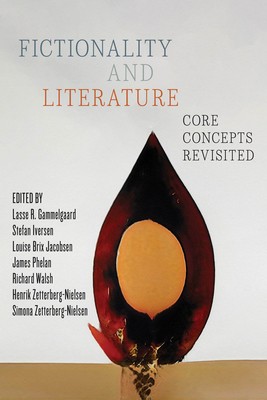
- We will send in 10–14 business days.
- Publisher: Ohio State University Press
- ISBN-10: 0814215017
- ISBN-13: 9780814215012
- Format: 15.2 x 22.9 x 2.2 cm, hardcover
- Language: English
- SAVE -10% with code: EXTRA
Fictionality and Literature (e-book) (used book) | bookbook.eu
Reviews
Description
Taking its cues from Richard Walsh's influential 2007 book, The Rhetoric of Fictionality, Fictionality and Literature sets out to examine the implications of a rhetorical understanding of fictionality. A rhetorical approach understands fictionality and nonfictionality not as binary opposites but as different means to the same end: influencing an audience's understanding of the world. Arguing that fiction is not just a feature of particular works, such as novels, but an adaptable instrument used to achieve an author's specific rhetorical goals, the contributors theorize how to reconceive of core literary features and influences such as author, narrator, plot, character, consciousness, metaphor, metafiction/metalepsis, intertextuality, paratext, ethics, and social justice. Combining analyses of a wide range of texts by Colson Whitehead, Charles Dickens, Kazuo Ishiguro, Toni Morrison, Geoffrey Chaucer, and others with historical events such as the Nat Tate biography hoax and the Anders Breivik murders, contributors discuss not only a rhetorical definition of fictionality but also the wider consequences of such a conception. In addition, some chapters within Fictionality and Literature offer alternatives to a rhetorical paradigm, thus expanding the volume's representation of the current state of the conversation about fictionality in literature.
Contributors:H. Porter Abbott, Catherine Gallagher, Lasse R. Gammelgaard, Stefan Iversen, Louise Brix Jacobsen, Rikke Andersen Kraglund, Susan S. Lanser, Jakob Lothe, Maria Mäkelä, Greta Olson, Sylvie Patron, James Phelan, Richard Walsh, Wendy Veronica Xin, Henrik Zetterberg-Nielsen, Simona Zetterberg-Nielsen
EXTRA 10 % discount with code: EXTRA
The promotion ends in 19d.21:18:16
The discount code is valid when purchasing from 10 €. Discounts do not stack.
- Publisher: Ohio State University Press
- ISBN-10: 0814215017
- ISBN-13: 9780814215012
- Format: 15.2 x 22.9 x 2.2 cm, hardcover
- Language: English English
Taking its cues from Richard Walsh's influential 2007 book, The Rhetoric of Fictionality, Fictionality and Literature sets out to examine the implications of a rhetorical understanding of fictionality. A rhetorical approach understands fictionality and nonfictionality not as binary opposites but as different means to the same end: influencing an audience's understanding of the world. Arguing that fiction is not just a feature of particular works, such as novels, but an adaptable instrument used to achieve an author's specific rhetorical goals, the contributors theorize how to reconceive of core literary features and influences such as author, narrator, plot, character, consciousness, metaphor, metafiction/metalepsis, intertextuality, paratext, ethics, and social justice. Combining analyses of a wide range of texts by Colson Whitehead, Charles Dickens, Kazuo Ishiguro, Toni Morrison, Geoffrey Chaucer, and others with historical events such as the Nat Tate biography hoax and the Anders Breivik murders, contributors discuss not only a rhetorical definition of fictionality but also the wider consequences of such a conception. In addition, some chapters within Fictionality and Literature offer alternatives to a rhetorical paradigm, thus expanding the volume's representation of the current state of the conversation about fictionality in literature.
Contributors:H. Porter Abbott, Catherine Gallagher, Lasse R. Gammelgaard, Stefan Iversen, Louise Brix Jacobsen, Rikke Andersen Kraglund, Susan S. Lanser, Jakob Lothe, Maria Mäkelä, Greta Olson, Sylvie Patron, James Phelan, Richard Walsh, Wendy Veronica Xin, Henrik Zetterberg-Nielsen, Simona Zetterberg-Nielsen


Reviews